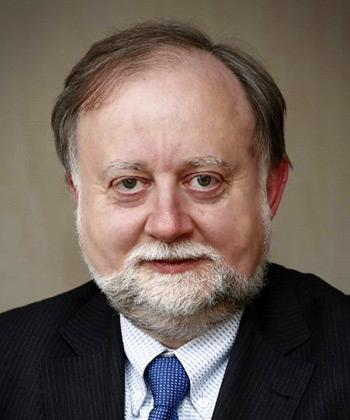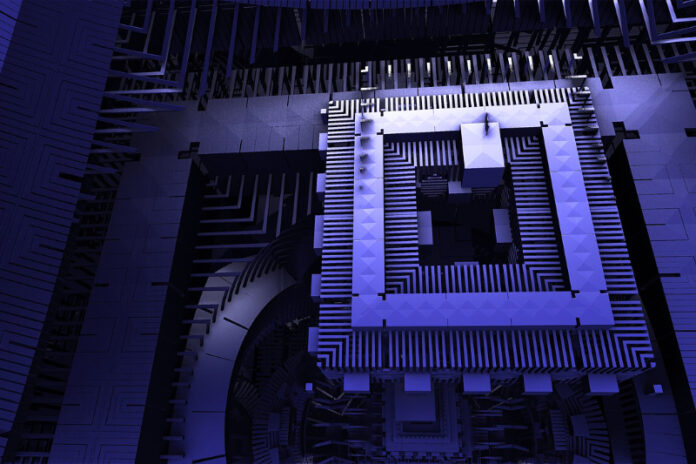The quantum era is on the horizon, promising to revolutionise industries from healthcare to defence with unparalleled computational power. Yet, the path to harnessing quantum technologies is filled with challenges that demand both innovation and collaboration.
Thales, a company engaged in aerospace, defence, and security, is one of the entities actively investigating quantum technologies. With efforts in areas such as quantum sensing and quantum encryption, Thales is part of the broader industry movement exploring how these technologies might change the way we live and work.
In this exclusive interview, Frontier Enterprise speaks with Dr Marko Erman, SVP and Chief Scientific Officer at Thales, to discuss the company’s current R&D efforts in quantum technologies. The conversation explores the specific areas where Thales is working, their collaboration with Singapore’s National Quantum-Safe Network (NQSN), and the anticipated breakthroughs in the field over the next five to 10 years.
Thales has been actively involved in the field of quantum technologies. Could you provide an overview of Thales’ current research and development efforts in these areas, and the specific areas where the company is making notable progress?
Thales has focused on three primary areas in quantum technologies: quantum sensing, communications, and computing. It also actively involves academia, seeking to bridge academic research with industrial application.
Quantum sensing can provide significant improvements in navigation, timing, and positioning. For example, quantum sensors can enhance radio frequency signal detections for antennas. Using cold atoms, it is possible to develop extremely high-precision inertial systems, and these then have the potential to revolutionise the aviation industry and transform the way we travel. Conventionally, aeroplanes heavily rely on GPS systems, which in turn depend on satellite signals. However, with the integration of quantum sensors, an aircraft could successfully navigate a route, such as from Paris to Singapore, and accurately land on the designated runway without relying on GPS. The successful implementation of such technology would not only benefit air travel but also have a positive impact on maritime, underground, and surface transportation.

Another area of research is quantum communications, and more specifically, quantum encryption. Quantum computers can solve problems that would typically require years or even thousands of years for a traditional computer to solve, accomplishing them in a matter of seconds. However, this immense computational power of quantum computers could also pose a significant threat to the security of even the currently most robustly protected communication systems, as they may have the ability to decrypt encrypted data like never before. Therefore, the crux of our research in quantum encryption is to enable highly secure communications, whether it is in government communications, financial transactions, or sensitive data exchanges. We recently spearheaded the EuroQCI initiative (European Quantum Communication Infrastructure) along with around twenty deep tech, academic, and industry partners. Our goal is to establish a quantum communication infrastructure for EU member states with the first tangible results in a three-year timeframe, to effectively counter any future quantum threat. The idea lies around having an ‘unbreakable key’. The first goal is to be able to secure the long-distance exchange of keys using satellite constellations. The second level is to achieve an exchange of quantum information. By having an unbreakable link of quantum computers in a network, complex calculations can be made at a much faster pace.
Thales is also involved in quantum computing, working on various use cases that could benefit from this type of quantum computers. In particular, this requires working on quantum algorithms, on programming, and on the portability of these algorithms on quantum computers. Thales is cooperating with companies providing quantum computer emulators and companies – in many cases, start-ups – developing quantum computer hardware.
Apart from our research, we also coordinate knowledge-sharing engagements in quantum to promote next-generation innovation for commercial applications. Recently on World Quantum Day, we concluded a Thales International quantum hackathon, pitting ten technical teams from all over the world, including Singapore. Each team comprising specialists competed to pitch innovative solutions that will shape the future of scientific and technological revolutions. The hackathon was a huge success, with the teams from Singapore and Germany taking the top spot for several unique quantum computing use cases in the areas of path-planning of drones and waveform optimisation for remote sensing.
Quantum computing is still an emerging field with numerous technical challenges. How does Thales approach these challenges and contribute to the overall advancement of quantum computing technology? Are there any unique approaches or methodologies that Thales employs?
There is no magic. At Thales, we believe in the importance of building and understanding fundamentals. While there is a global effort in developing the next quantum computer, we believe we cannot wait until the quantum computer is built before taking action. And for this task, we have set up a global hub, consisting of all of the worldwide Thales Research & Technology (TRT) units, supported by the business lines to find the right tools, assess the right technology (of quantum computers fitting Thales uses), and develop the right models to address our needs. Specifically, we first identify key areas of quantum that we think can positively impact our future solutions or businesses. Our scientists and engineers keep abreast of the latest technologies in this field. We are early movers, assessing the trade-offs that each type of quantum computer brings, working with companies and start-ups to address our use-cases, and setting the standards behind testing. In the meantime, we work with organisations that develop tools, including simulators and emulators, that will allow us to test the models that we have developed.
Thales is also leading the BACQ project in France, aimed at developing, exploiting, and promoting a reliable, objective, and long-lasting measurement instrument of quantum computing’s practical performance by considering a set of benchmarks at a level close to real applications that could make it meaningful for industrial users. The BACQ testbed operation could be extended in cooperation with Singapore, with a dialogue established with the Singaporean stakeholders to build common practices.
Can you give us an overview of Thales’ collaboration with Singapore’s NQSN and the role it plays in enhancing Singapore’s digital infrastructure? How does Thales contribute to the development of quantum solutions without compromising digital sovereignty?
In 2021, Thales signed a memorandum of understanding (MoU) with the National University of Singapore (NUS) for a two-year partnership to jointly develop and test quantum technologies for commercial applications. Under this MoU, Singapore’s Quantum Engineering Programme (QEP) and Thales are focused on developing capabilities to test and evaluate interdisciplinary quantum security technologies, with the aim of providing critical systems to our customers while also protecting their interests.
The following year, we launched the NQSN and initiated testing for government agencies and private companies interested in utilising quantum-safe communication technologies. Along with another industry partner, Thales worked on network security, contributing hardware components for integration into NQSN. Specifically, our SafeNet Luna Hardware Security Modules (HSMs) and high-speed network encryptors were made accessible, ensuring compatibility with quantum computers. This helped researchers explore and experiment with the combination of quantum technology, and secure data storage and transmission.
Thales recognises the importance of maintaining digital sovereignty while contributing to the development of quantum solutions. Some of these ways include:
- Research and development: Thales invests in extensive research and development efforts focused on quantum technologies. By conducting in-house research and collaborating with academic institutions and research organisations, Thales aims to develop quantum solutions that align with its vision of digital sovereignty.
- Security-driven approach: Thales prioritises security in its quantum solutions. Our emphasis is on the development of robust cryptographic algorithms and protocols that can resist attacks from both traditional and quantum computers. Thales seeks to protect digital sovereignty by working towards the security of its quantum solutions.
- Collaboration with governments: Thales collaborates with governments to address the challenges of digital sovereignty in the quantum era. By working with government entities, Thales aims to develop quantum solutions that align with national interests and contribute to the protection of critical infrastructures.
- National quantum initiatives: Thales participates in national quantum initiatives and supports the development of quantum ecosystems within countries. By contributing to these initiatives, Thales helps strengthen the local quantum expertise and infrastructure, reducing reliance on foreign technologies and enhancing digital sovereignty.
Quantum technology holds tremendous potential for various industries, including healthcare, transport, financial services, and defence. What are some of the most promising applications of quantum technology in these sectors? How does Thales envision the use of quantum solutions in these areas, considering the unique challenges each sector presents?
Quantum technology offers limitless possibilities across diverse industries such as manufacturing, mobility, defence, healthcare, and the environment.
Healthcare is set to experience rapid disruption in the near future. Quantum computers will enable scientists to construct models of complex molecules, such as proteins and other biological matter, comprising thousands of atoms. This breakthrough will facilitate research at the cellular and molecular levels, leading to the development of precise treatments for diseases like cancer.
Furthermore, quantum sensors can help introduce new medical imaging techniques, surpassing the current capabilities of MRI imaging, by offering insights at the cellular and molecular levels. This can ensure early detection of anomalies, lesions, and cognitive disorders.
A quantum system is also more frugal in its energy consumption than an equivalent system based on conventional technology. By optimising the systems used in sectors such as air traffic management, energy distribution, waste collection and processing, and natural resource management, quantum computers will help reduce the carbon footprint of these sectors. Today’s computers cannot solve most of these optimisation issues when more than a few variables are involved.
While we are already in the process of making some of these quantum applications a reality, there is still work to be done regarding data privacy protections, industry-specific algorithm development, and seamless integration into existing systems. Through investment in quantum research and collaboration with industry partners and governing bodies, we aim to leverage quantum technology in a manner that prioritises safety and efficiency, and addresses the critical needs of these industries.
Quantum computing holds immense potential for ground-breaking innovations. From Thales’ perspective, what are some of the key breakthroughs that you anticipate in the field during the next 5 to 10 years, and how do you envision Thales contributing to these advancements?
The areas of exploration are immense. Thales is investigating the potential of quantum technologies to solve a wide range of complex mathematical problems that correspond to a large and diversified set of applications.
For instance, in the area of ground, naval, air, or space sensors, cybersecurity, and systems, Thales leverages quantum algorithms to address various challenges. These include online quantum algorithms for operations to optimise scheduling and planning, for anomaly detection, or for command and control reconfiguration and crypto-analysis.
Thales also uses offline quantum algorithms for engineering purposes. For example, these algorithms are used in electromagnetic simulation, design optimisation, massive testing/IVVQ, and complex systems performance assessment.
The uses of quantum technologies are widespread, and Thales aims to benchmark these algorithms, software, tools, and emulators in various use cases. This effort is intended to help scale up projections and aid in developing and refining new applications.
















